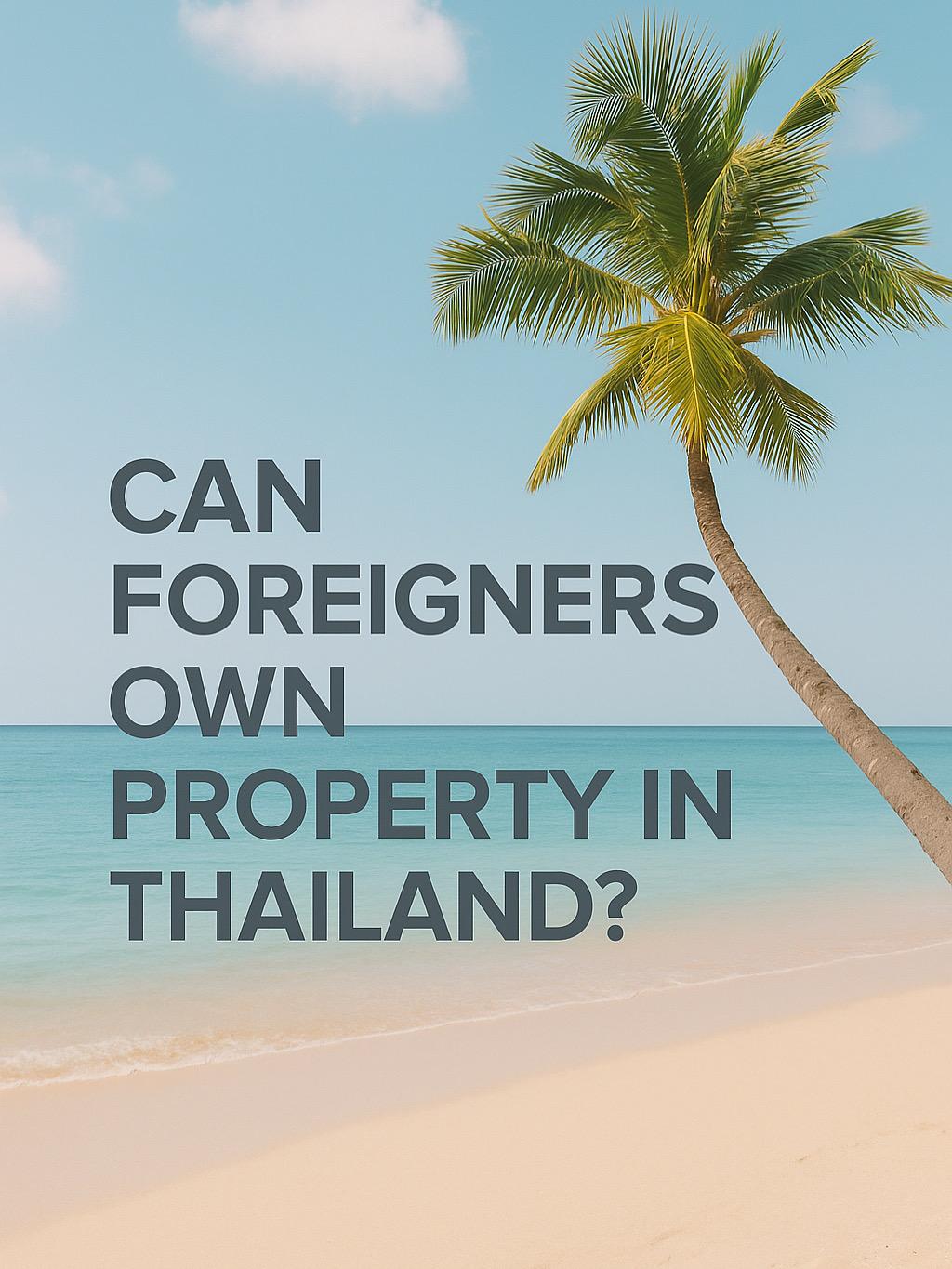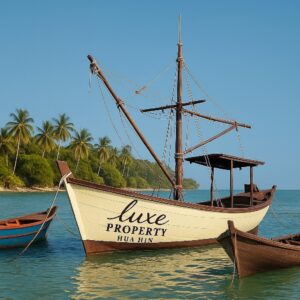Your Guide to Foreign Property Ownership in Thailand – Freehold vs Leasehold
Thailand continues to attract international property investors with its laid-back lifestyle, beautiful coastal regions, and excellent value for money. But what exactly can a foreigner legally own?
Can Foreigners Own in Thailand
Freehold Condominium
Foreigners can legally own a condo unit outright, provided it falls within the 49 percent foreign ownership quota of the registered condominium project.
Leasehold property
Foreigners can secure long-term leasehold rights to a condo or villa, typically up to 30 years, with the option to renew depending on the contract.
Villa construction without land ownership
You may own the building through a construction contract while leasing the land underneath.
Thai company structure
In more complex cases, a foreigner can hold shares in a Thai company that owns land. This route should be handled with legal oversight.
How to Buy a Condo Under Freehold
Confirm the development has available foreign quota
Transfer funds from abroad and obtain a Foreign Exchange Transaction (FET) form
Register your ownership with the Land Department
Can Foreigners Pay in Instalments
Yes some developers offer financing, or you may enter an agreement with a private seller. Banking mortgage options exist but are limited for foreigners.
Freehold vs Leasehold Investment Returns
Leasehold typically offers a higher return on investment due to a lower purchase price
Freehold gives better liquidity and resale potential
A well-structured leasehold with flexible terms can still be highly profitable, especially in prime locations
Legal Protections
Freehold assets are fully inheritable
Leasehold may be passed on only if inheritance rights are clearly included in the agreement
To protect your purchase
Always check the Chanote Title Deed
Confirm foreign ownership quota for freehold purchases
Hire a lawyer for due diligence
Ensure the contract is registered with the Land Department
Taxes and Fees for Foreign Owners
Annual property tax if not used as a primary residence Rental income tax if the property is let out Capital gains tax upon resale Transfer and registration fees during sale or purchase
Lease Terms and Renewals
Standard leasehold terms are up to 30 years
Renewals such as 30 plus 30 plus 30 must be clearly outlined and legally binding
Renewal is not automatic and must be contractually guaranteed
Conclusion
With the right structure and professional guidance, foreigners can safely invest in Thai real estate. Whether you’re looking for long-term capital growth, rental income, or a lifestyle retreat, Thailand offers both flexibility and opportunity.
Interested in property investment in Hua Hin or across Thailand
We’re here to help you every step of the way
Contact Luxe Property Hua Hin
Phone +66931437986
Email maria@luxepropertyhuahin.com
Website www.luxepropertyhuahin.com




